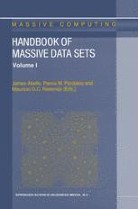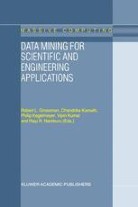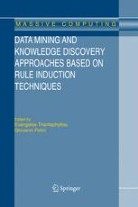
About this book series
The proliferation of massive data sets brings with it a series of special computational challenges. This "data avalanche” arises in a wide range of scientific and commercial applications. With advances in computer and information technologies, many of these challenges are beginning to be addressed.
John R. Tucker of the Board on Mathematical Sciences has stated, "My interest in this problem [massive data sets] is that I see it as the most important cross-cutting problem for the mathematical sciences in practical problem solving for the next decade, because it is so pervasive.”
There is a broad spectrum of applications that require computation with massive data sets. These include telecommunications, medicine and biotechnology, astrophysics, finance, geographical information systems, the environment, demographics, the Internet, information retrieval, code searching, and government systems.
Many interdisciplinary efforts and sophisticated techniques can be used to handle these problems. Computer scientists, mathematicians, statisticians, and engineers are joining efforts to elucidate the main inherent difficulties present in these applications. Massive Computing is a series that embraces state-of-the-art expository works, advanced research monographs, and textbooks on all topics in the field of massive data sets and computing, including theory, systems, and applications. The series emphasizes problems whose solution involves the use of scalable methods, fast I/O and storage devices, very large network processing, distributed programming, and visualization platforms.
The books in the series address concepts, methods, computing environments, and related research issues. The target audience is industrial and academic researchers, graduate and undergraduate students, and practitioners who are interested in scientific and technological aspects relevant to the processing of massive data sets. The series will include texts and monographs suitable for courses in computer science, engineering, business, applied mathematics, operations research, and statistics.
Some of the topics covered in the series include:
• Computational models and architecture platforms;
• Extended memory algorithms and data structures;
• Programming environments, software systems, and languages;
• Cryptographic protocols;
• Storage devices, data compression, and reliability;
• Mathematical and statistical methods for knowledge mining;
• Visualization and applications;
• Applications of massive data sets and computing.
- Electronic ISSN
- 2468-8738
- Print ISSN
- 1569-2698
- Series Editor
-
- Pardalos Panos M.,
- James Abello,
- Mauricio G.C. Resende
Book titles in this series
-

-
Data Mining for Scientific and Engineering Applications
- Editors:
-
- R.L. Grossman
- C. Kamath
- P. Kegelmeyer
- V. Kumar
- Copyright: 2001
Available Renditions
- Hard cover
- Soft cover
- eBook

-
Data Mining and Knowledge Discovery Approaches Based on Rule Induction Techniques
- Editors:
-
- Evangelos Triantaphyllou
- Giovanni Felici
- Copyright: 2006
Available Renditions
- Hard cover
- Soft cover
- eBook

-
Data Mining for Design and Manufacturing
Methods and Applications
- Editors:
-
- D. Braha
- Copyright: 2001
Available Renditions
- Hard cover
- Soft cover
-
Knowledge Discovery and Data Mining
The Info-Fuzzy Network (IFN) Methodology
- Authors:
-
- O. Maimon
- M. Last
- Copyright: 2001
Available Renditions
- Hard cover
- Soft cover

